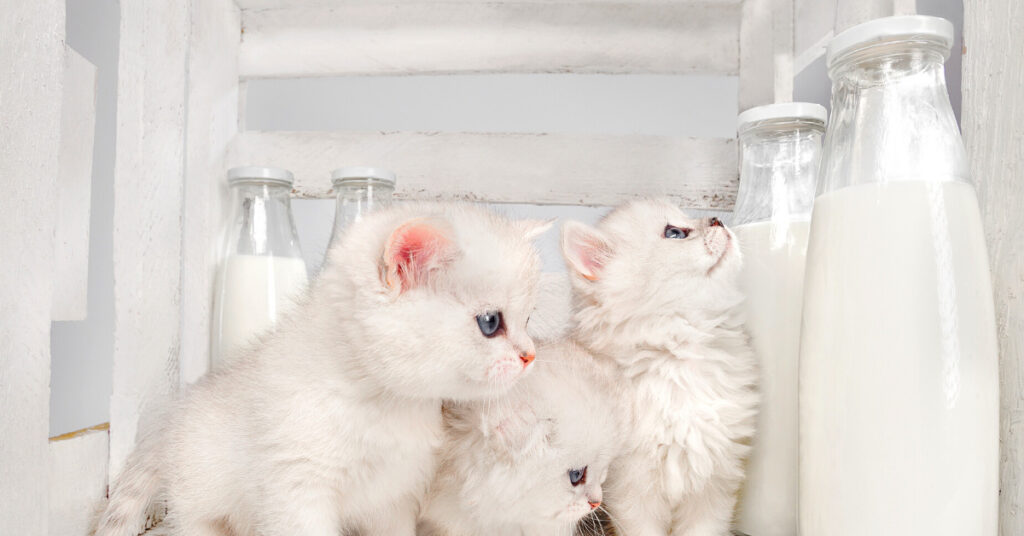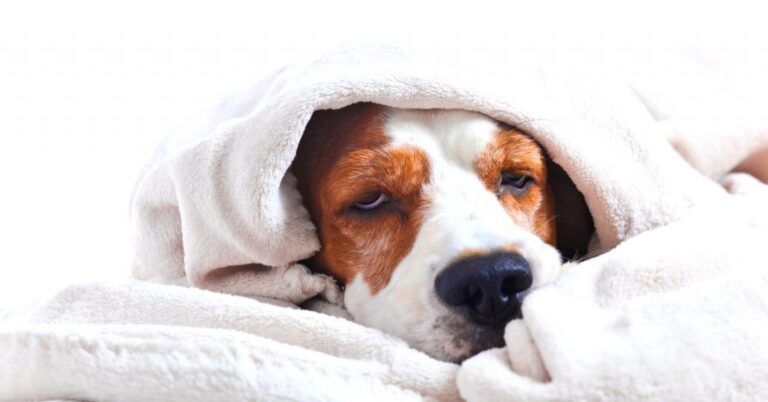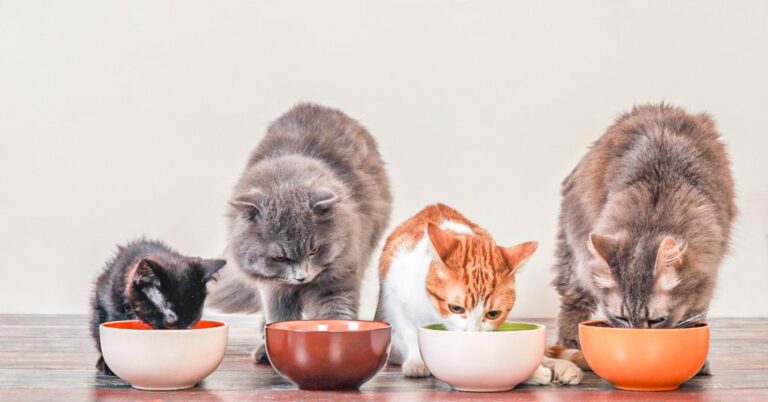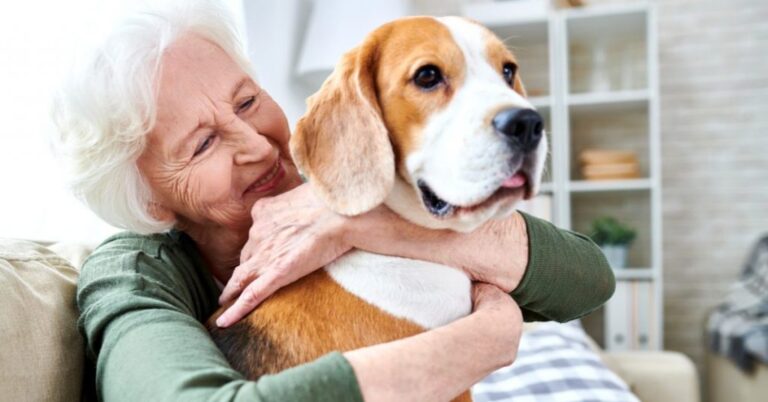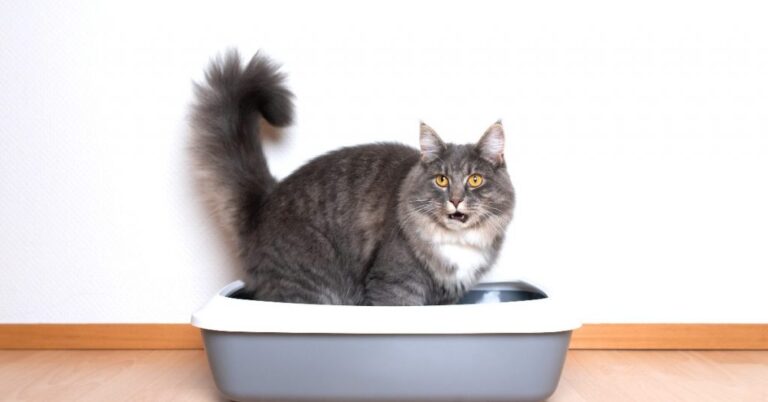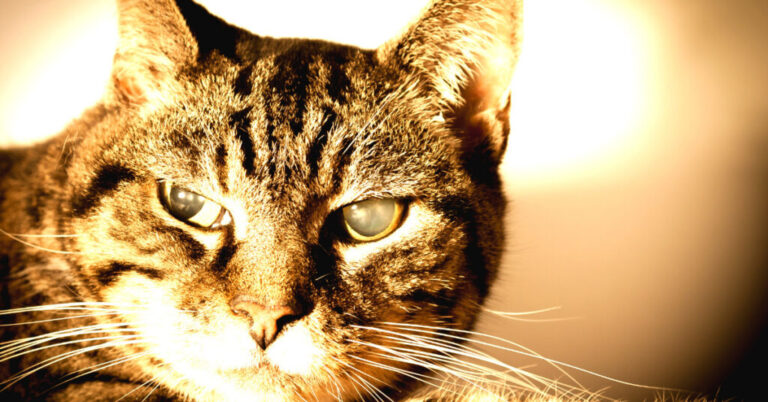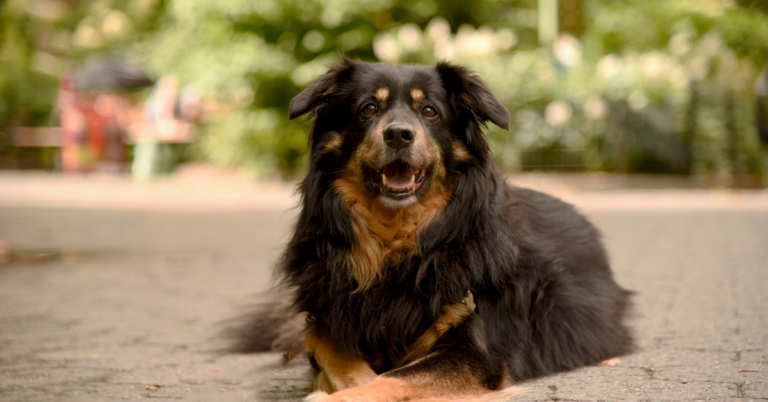Is Milk Bad for Cats?
Is milk bad for cats? Kittens are drawn to drinking milk, but as they grow into adults, it may not be the best option for hydration.
What appears to be a harmless snack for your kitty friend can trigger stomach upset.
We’ll go through why cats like milk, why milk is bad for cats, alternatives to milk, and how to give milk to your cat safely.
Can Cats Drink Milk?
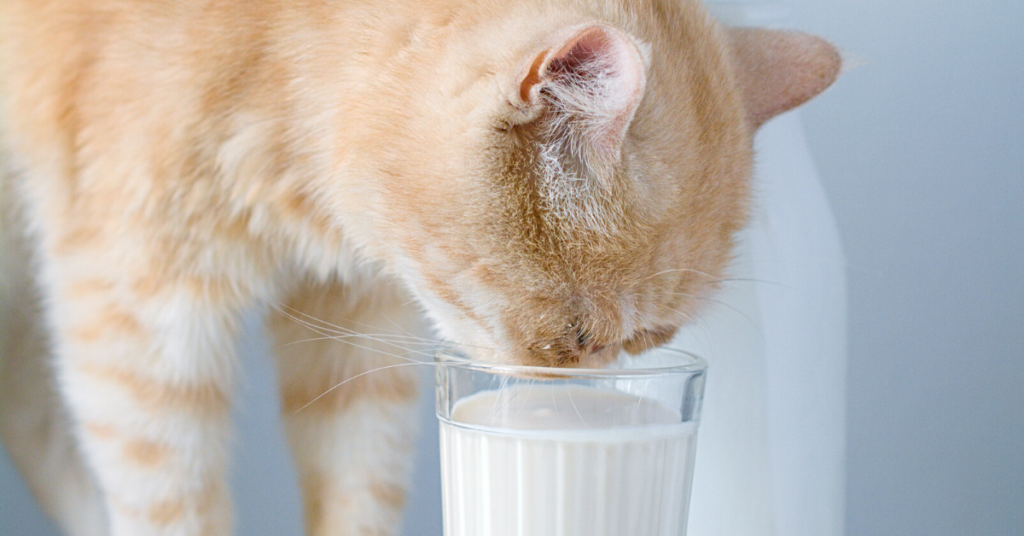
Feeding your cat milk on a regular basis isn’t a good idea. The fact is that most cats are lactose intolerant, and/or become dehydrated when they drink cow’s milk.
This is why giving them cow’s milk can actually cause serious health issues like upset stomach, stomach cramps, and severe diarrhea.
Milk lacks the necessary elements that cats require to grow. Too much milk can also make them lose their desire for meat-based diets, resulting in nutritional deficiencies.
You can give small amounts of milk to your cat, because some cats digest milk better than others.
However, it should be less than 10 percent of your cat’s daily food intake. If you give them more than that 10 percent, then you may disrupt their diet
Cow’s milk alone won’t provide your cat with all of the essential nutrients he or she needs to stay healthy, and it contains a lot of fat and sugar.
In addition to cow’s milk, whole, two percent and skim cow’s milk can also contain unhealthy amounts of fat.
Fat and sugar in milk will cause weight gain and diabetes. Other possible side effects of consuming milk regularly include inflammation of the digestive tract, inflammation of the colon, irritable bowel syndrome, loss of appetite, vomiting, and dehydration.
If you give milk products to your cat on a regular basis, you need to modify their solid food diet to compensate for the calories in the milk in order to avoid obesity, and its associated cat health consequences.
Why Are Cats Lactose Intolerant?
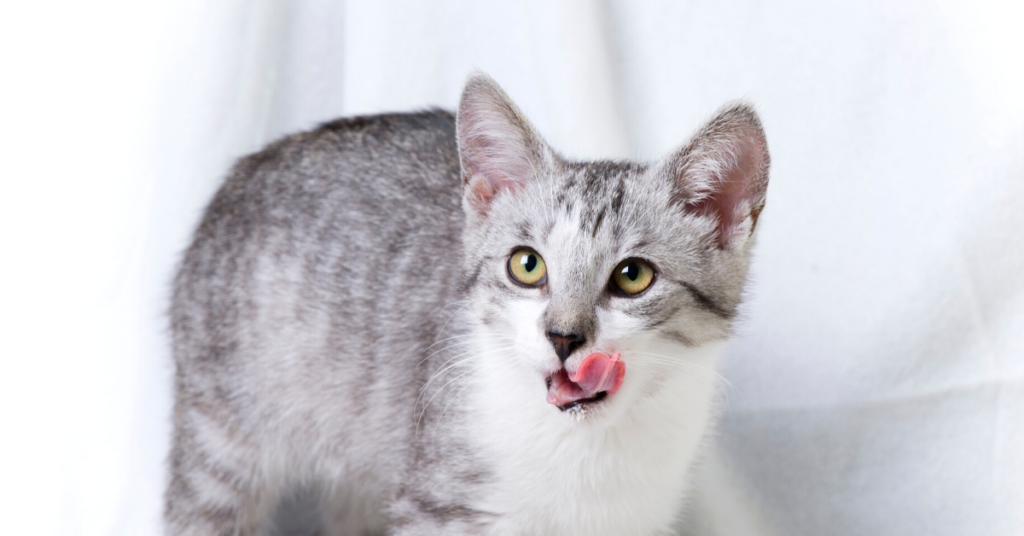
Majority of cats can’t digest lactose, because they don’t have the enzyme lactase, which helps in the digestion of lactose in milk.
When a cat drinks milk, undigested lactose passes through the digestive system of the cat, and absorbs water from the intestines.
Which means that lactose can’t pass past the intestinal tract and into the bloodstream. Cats are also prone to intestinal bacteria, which can result in severe gas and diarrhea.
Kittens have more lactase in their bodies than adult cats, so they can digest milk better. However, as they get older, the enzyme declines quickly.
Most cats stop producing lactase by the time they’re 12 months old, according to a 2019 research.
This indicates that most cats can only take a small amount of lactose before experiencing problems.
Alternatives to Milk for Cats
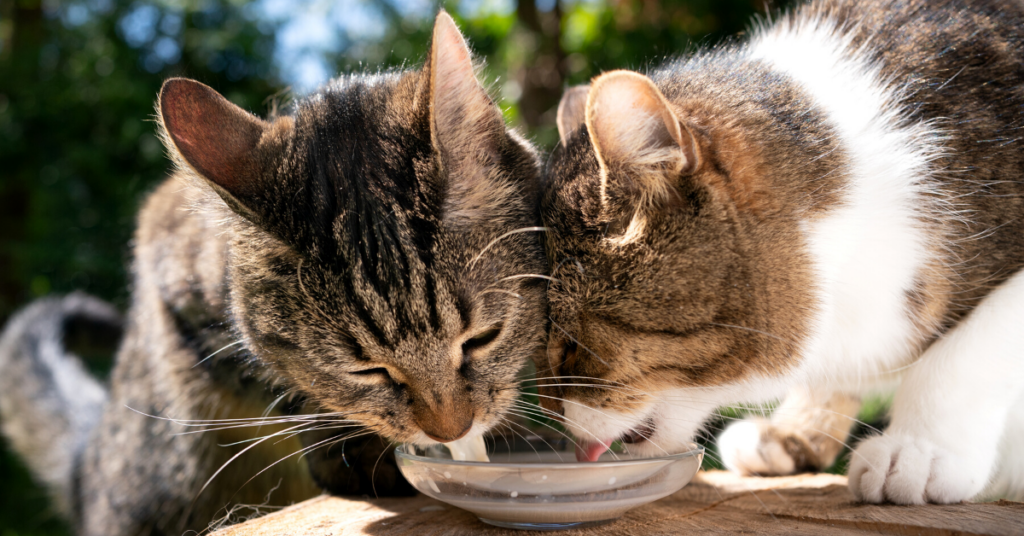
If your cat isn’t vomiting or has diarrhea, he or she can drink small amounts of whole, skim, or lactose-free milk.
According to some experts, cream is preferred to standard milk since it contains less lactose than whole or skim milk.
CatSip and CatSure are two lactose free milk alternatives for cats that have been developed over the years.
CatSip is real Grade A milk from a dairy that was created specifically for cats to reduce the risk of intestinal disorders.
CatSure is a complete, balanced liquid nutritional meal. It’s created especially for adult and senior cats and contains high-quality protein and amino acids for a healthy lifestyle.
If your cat isn’t drinking enough water, you can add wet food to their diet, to avoid dehydration.
When Is Milk Safe for Cats?
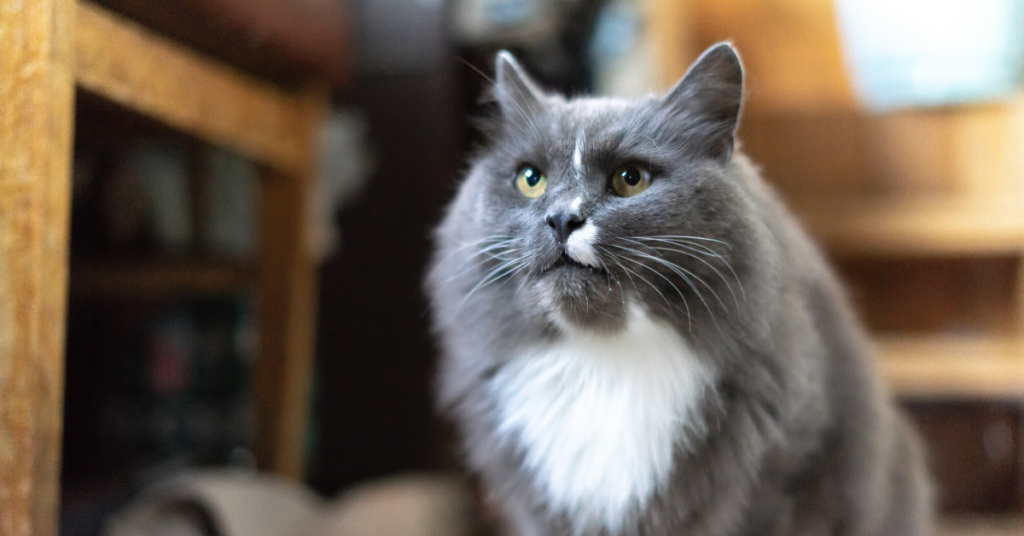
It’s fine to give your cat milk, if he or she can drink it without getting sick. A low-fat milk can serve as a source of hydration for cats, in case of not drinking enough water.
Your veterinarian might also recommend milk in small quantities for cats who suffer from constipation.
However, it’s important to keep in mind that constipation in cats can be caused by a variety of factors.
Before giving your cat milk at home, see your veterinarian to identify the source of the problem.
When to See a Veterinarian
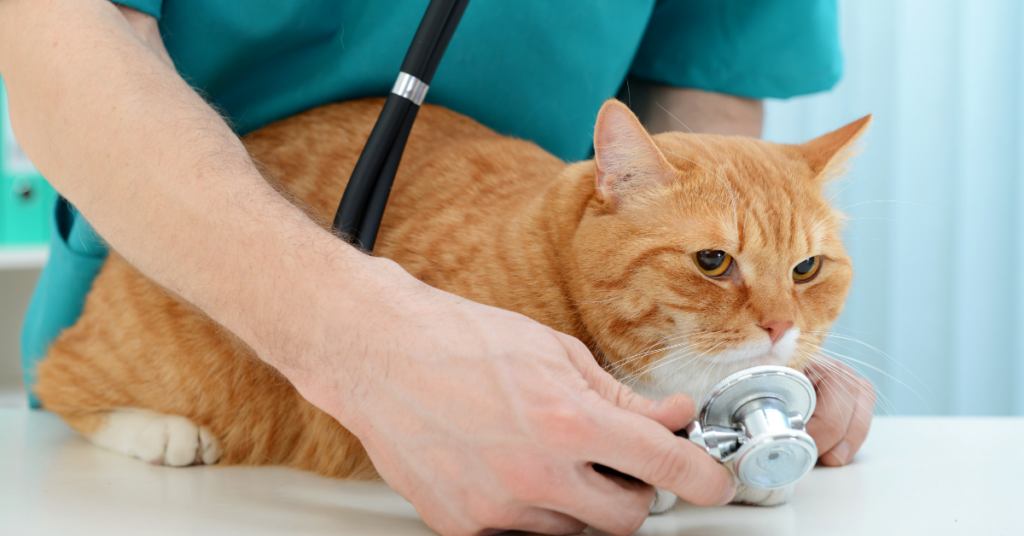
If your cat is suffering from constant diarrhea, constant constipation, or dehydration, it’s time to visit the vet to determine the cause behind these conditions.
If the milk is causing these problems, the veterinarian will recommend to cut it out of the cat’s diet, or offer some lactose free alternatives.

